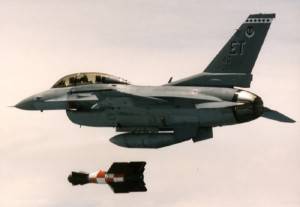Iranian aviation engineer sentenced to federal prison in espionage case
 “Perhaps the investigators in this case should be assigned to probe Hillary Clinton’s mysterious activities.” – Det. Charles Layfield
“Perhaps the investigators in this case should be assigned to probe Hillary Clinton’s mysterious activities.” – Det. Charles Layfield
An Iranian citizen who is also an naturalized American claimed on Friday that he was sorry for having exported classified material regarding U.S. military fighter jets to the Iranian government. He also gave the excuse that he had only been applying for an engineering job. Following the Iranian spy’s allocution, the federal judge sentenced him to only a little more than eight years in federal prison.
Mozaffar Khazaee, who was employed as an aviation engineer at Pratt & Whitney, a U.S. contractor, was arrested by federal law enforcement officers 21-months-ago when he attempted to flee the country with information describing the state-of-the-art engines for the F-35 Joint Strike Fighter and F-22 Raptor aircraft. The stolen blueprints where found in the Iranian’s luggage. Besides the meager prison sentence, Khazaee was ordered to pay an additional $50,000 penalty by U.S. District Judge Vanessa L. Bryant of the District of Connecticut.
“Mozaffar Khazaee exploited his privileged access to national security assets to steal highly sensitive military technology with the intent of providing it to Iran,” said Assistant Attorney General Carlin. “Violations of the Arms Export Control Act, particularly those involving attempts to transfer sensitive defense technology to a foreign power, are among the most significant national security threats we face, and we will continue to leverage the criminal justice system to prevent, confront, and disrupt them.”
According to the U.S. Justice Department, the 61-year-old Iranian violated the Arms Export Control Act when he attempted to give highly sensitive, proprietary, trade secret and export controlled material relating to U.S. military jet engines to Iran. The indictment claimed that he had stolen sensitive material from a number of U.S. defense companies at which he previously worked.
Khazaee had also exchanged emails containing information about the programs with Iranian contacts, according to court papers. However, the Iranian claims he did not know he was dealing with the Iranian government.
“I never sold anything to anybody,” Khazaee told the court. “Had I known that making a PowerPoint presentation to an Iranian university in my attempt to get a job was breaking the law, I never would have taken the documents at all.”
But Judge Bryant responded that she wasn’t impressed one bit with Khazaee allocution or his apology for the emails relating to his previous employer, a unit of diversified manufacturer United Technologies Corp.
“He not only minimizes his criminal conduct but genuinely fails to understand the significance of his actions, and that is especially troubling,” Bryant said. Despite her obvious feelings in the case, she still gave the Iranian spy and thief less than the 10-year minimum sentence the U.S. prosecutors had been seeking.
Before his time at Pratt & Whitney, which makes jet engines, Khazaee worked at major manufacturers including General Electric Co, according to court papers. “The evidence developed during this investigation and today’s sentencing of Mr. Khazaee illustrate the potential for harm to the U.S. through illegal exportation of sensitive documents and technology,” said Special Agent in Charge (SAIC) Craig Rupert of the Defense Criminal Investigation Service. “DCIS, along with our partner agencies, continues to prioritize and pursue these investigations to curtail any adverse impact to America’s warfighters and shield America’s investment in national defense,” Rupert added.


